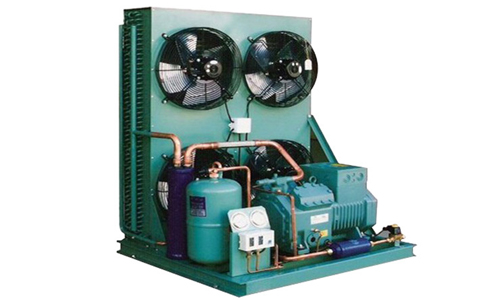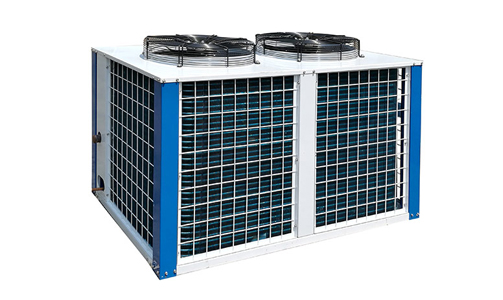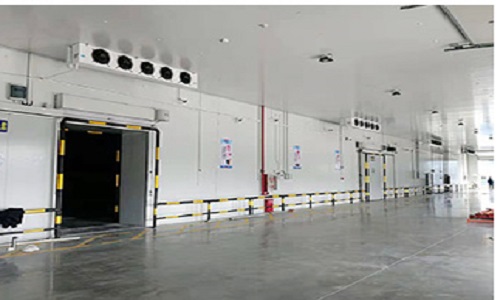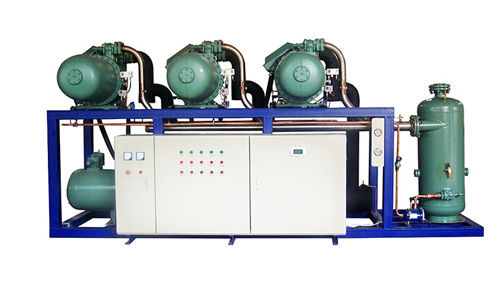Choosing the right chiller for your application means exploring a wide range of options. They have multiple cooling functions, each machine with its own advantages. In order to determine the specifications of the chiller you need, you must have a preliminary understanding of the features involved. A good starting point is a common cooling mechanism called a condenser.
The basics of condensers in chillers
Typically, chillers use a device called a condenser to cool the refrigerant (the chemical used to absorb heat from the cooling part of the machine.)
Condensers are a type of heat exchanger. They get their name because they use a medium to absorb heat from the vapor of the refrigerant so that the vapor condenses into a (colder) liquid. They usually sit around a compressor, which takes the now liquid refrigerant and pressurizes it. This pushes the refrigerant through the coil where the liquid will absorb heat from the cooler, turning it into a vapor that will go through the whole process again.

Air Cooled Piston Condensing Unit
What is an air-cooled condensing unit?
There are several types of condensers, classified by the type of medium used to cool the vapor. A common type used in industrial applications is the air-cooled condensing unit, also known by the acronym ACCU.
Air-cooled condensers push or pull air around a series of finned metal tubes. These tubes are filled with hot gas, and as the air cools, vapors from condensate on the tubes drip into a reservoir or drain. The air, now very hot, leaves the cooler. Industrial machines will use fans to draw in cool air from the outside and expel hot air from the chiller. You may see some small condensers that use gravity to move the air. Designs can come with horizontal or vertical vents, which will help with the shape of the chillers and where to place them.
What is a water-cooled condensing unit?
This type of condenser uses water pipes to do the same job as the air in an air-cooled design. The hot refrigerant vapor enters the sealed enclosure where the chilled water pipe or coil is located. The cold water absorbs the heat.

Air-Cooled Compressor Unit;
Benefits of Condensing Units
ACCUs have a number of benefits. The most obvious is that these units do not require water to work. You don't have to worry about adding anything or having the condensing media freeze. There is also no limescale forming on the tubes. It is also usually easy to install and keep clean. They can be used for outdoor installations.
However, water-cooled condensers don't have to worry about getting fresh air to stay cool, and they can be more compact in design. There's also the noise factor: no fans buzzing in the background during the workday. You can use lower condensing pressures in the machine, and you have better control over the pressure. Water-cooled chillers fit well inside, and the condenser can be outside, in a separate circuit. Some chillers use a water tower to release the heat absorbed by the water to the outside.
We have a variety of chillers to choose from, some with water-cooled condensing units and some with air-cooled condensing units. If you need to purchase any of these types of chillers, contact us.








